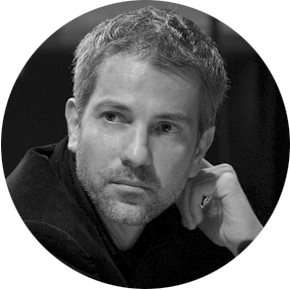Mediamax’s interview with David Aprasidze, Professor of Political Science, Ilia State University.
This interview was recorded on November 25, 2024 – before the start of mass protests in Georgia on November 28.
- The so called “strategic turn” in Georgia’s foreign policy - is this something completed or are there still chances to get back on track?
- I still expect that there is some room left for moving or getting Georgia back on track. But rationally speaking, what can we expect? What are the chances for this to happen? Very slim, honestly.
The Georgian Dream has announced its election victory, but internal protests and resistance remain relatively weak. I don’t want to blame the opposition, there are objective reasons why they are not strong and why they are not united. We have to accept this.
The only chance to get Georgia back on track is to impose very strong sanctions, exert pressure from outside, not to recognize the new authorities, suspend the visa-free regime, etc. But I don’t expect this can happen in the nearest future, because there are so many problems in the world. We love to be in the center of the world, but that’s not the reality.
Another option is that the Georgian Dream itself reopens the space toward Europe and says, ‘you know, guys, we can resume this process, but on our terms.’
Therefore, I expect that we will remain in this in betweenness. And that’s exactly what actually Bidzina Ivanishvili wants the most. So, if there is no geopolitical, dramatic change, Georgia will be like a buffer zone, maybe between Russia and Europe.
- From a regional perspective, the South Caucasus today appears far more divided than it was two decades ago. There was a time when Georgia was firmly seen as a pro-Western country, Azerbaijan seemed more pro-Western than pro-Russian, and Armenia was considered as pro-Russian. Today Georgia seems to becoming more pro-Russian, Azerbaijan positions itself as self-sufficient and President Aliyev criticizes the West, the European Union and France. Armenia is now becoming more pro-Western and is trying to “escape” from Russia. How long can this situation continue?
- Well, I completely agree with your assessment. I was thinking that maybe it’s really geopolitical constraints that lead the Georgian Dream to this kind of decisions. But when I look how the domestic politics evolved over time, I still come to my initial guess or the answer to the question that it’s about holding the power, because otherwise, this opportunity of having Armenia on your side now, would tremendously change the logic in the region.
I don’t think that today we are capable to define our fate or our place independently, which means that more we cut ties with the West, the greater influence Russia will gain in the region. Therefore, if the situation continues as it is like now, the Russian influence will increase.
And we may see Georgia joining, maybe not directly the Eurasian Union, but 3+3 format (Armenia, Azerbaijan, Georgia+Russia, Iran, Turkey-Mediamax), and gradually moving to this orbit.
- There is another factor - nobody knows how far Armenian government will go with its pro-Western stance. Russian influence remains significant: there is still the Russian base in Armenia, and the ongoing economic and energy dependence. Additionally, as you rightly said, this region is not a priority for the EU today, because the EU has many other things to deal with and most notably, President Trump taking office in January 2025.
Do you think this situation could pose challenges for bilateral relations, or will both sides manage to maintain the necessary level of relations despite these geopolitical choices or differences?
- I’m not an expert on Armenian foreign policy, but at least what I observe on bilateral track, Armenia has always been very rational towards Georgia. So whatever Georgian authorities were changing or reshuffling the foreign policy, Armenia was always accepting it and adjusting to it.
Therefore, I think that there will be no bilateral tensions. And also, there are some personal contacts, as far as I understand, between the leaders of two countries, and that will also help to downplay any potential tensions. So, I don’t expect that this will have a tremendous effect on the bilateral relations.
- During past two years, the Armenian premier and other senior officials were talking about the need to have not only good neighborly but strategic relations with Georgia. But my impression is that it’s still a good rhetoric that lacks content.
- If both countries continue the Western integration, that will create the foundation for this kind of strategic relations, because there would be a strategic goal to be achieved. If at some point the externalities allow us to continue the Western path, there will be a need for a strategic relationship.
- Economically and politically, Azerbaijan and Turkey are very important for Georgia. Do you think that Georgia’s reorientation could somehow impact its relations with these countries?
- We could say that it will have a more, let’s say, reinforcing effect. It will cement the relationship between this trio - Turkey, Georgia and Azerbaijan - and the main message would be “Let’s keep the West out of the region’s affairs.” I believe that Turkey and Azerbaijan would welcome this change of position of Georgian authorities. At the same time, I think neither Azerbaijan nor Turkey would welcome the increased Russian influence in Georgia.
Therefore, I think that they will support Georgia in maintaining a certain balance. And I believe that when Georgian authorities considered distancing from Europe, they likely counted on the idea that Turkey could fill the gap.
- When we talk about Georgian-Armenian relations, it’s certainly good when the governments and the politicians maintain close ties. But what we lack today are people-to-people contacts. Many Armenians visit Georgia for obvious reasons – summer tourism and also as a transit point. But a lot of Georgians have never been to Armenia. Sometimes it feels as though Armenia does not exist on the map for some Georgians. Do you think governments can play a role in addressing this?
- I completely agree with your observation. For many years we are kind of ignoring our geography somehow. And we don’t know what’s happening in Armenia, we don’t know what’s happening in Azerbaijan, honestly. I think it is possible to change this.
I work at university, and I think that universities can cooperate, for instance, and they can also have some exchange programs. And it’s not too expensive, right? Not only universities, also high school students exchange programs. Why not organize mutual visits and exchanges? That’s also possible.
Ara Tadevosyan talked to David Aprasidze





















